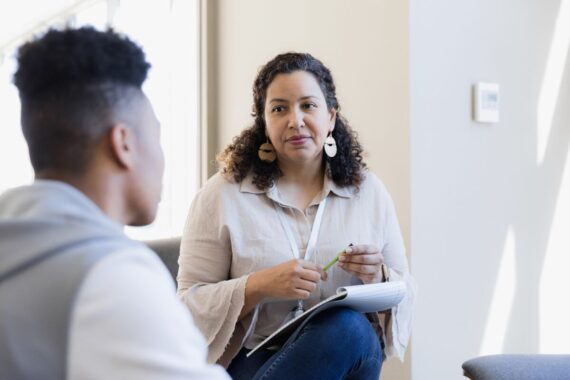GP-led talking therapies could reduce PTSD symptoms in critically ill patients

Talking therapies led by GPs could reduce post-traumatic stress disorder (PTSD) symptoms in patients with critical illnesses, researchers have reported.
A trial of 319 adults conducted at GP practices across Germany found that critically ill patients’ PTSD symptoms were eased following structured GP intervention.
The results, published in the BMJ, suggested that structured GP consultations may also be able to bridge the waiting times between patient discharge from intensive care units (ICU) and access to specialist mental health services.
Around 20% of patients who are in intensive care go on to suffer from PTSD symptoms.
Most aftercare for ICU patients is provided by primary care given the long waiting lists for specialist mental health services, but services for PTSD symptoms are not as common in primary care.
Adults in the trial received either three structured GP consultations with eight follow-up nurse interactions to target their PTSD symptoms (intervention group), or improved usual care (control group).
Results were obtained by measuring the change in severity of PTSD symptoms using the post-traumatic diagnostic scale (PDS-5) over six months.
Both groups had an average PDS-5 score of 30.6 at the beginning of the trial. The PDS-5 has a range of 0-80, with a higher number indicating more severe symptoms of PTSD.
At six months, the average score in the intervention group had declined by 6.2 points; the control group only by 1.5.
At 12 months, the intervention group’s average PDS-5 score had declined by 7.9 points; and the control group by 2.5 – a difference of 5.4 points.
The results are below the minimal clinically important six-point difference, but the researchers point out that this could be due to the brief and low intensity nature of the interventions – limiting any substantial symptom reduction.
The researchers also outlined other limitations of the study, such as:
- Excluding people with severe PTSD symptoms
- Providing only brief training for GPs
- Other unmeasured factors may have influenced their results
But the study’s researchers said: ‘Given the prevalence of PTSD symptoms following critical illness, and the long waiting lists for mental health specialists service, the intervention may be feasible and beneficial for general practice.
They continued, saying that the trial ‘represents an important advance in trauma informed primary care interventions, bridging acute care and long term psychological support.’
They point out that their model is not a replacement for psychiatric treatment, but could offer a pragmatic solution to reduce the ‘psychological burden’ of critical illnesses, while also assisting healthcare systems with a lack of specialist resources.
Future research, they say, ‘should focus on refining content of therapy, optimising delivery of care, and ensuring broad integration across healthcare systems.’
Portfolio careers
What is the right portfolio career for you?

Visit Pulse Reference for details on 140 symptoms, including easily searchable symptoms and categories, offering you a free platform to check symptoms and receive potential diagnoses during consultations.
Related Articles
READERS' COMMENTS [2]
Please note, only GPs are permitted to add comments to articles













This seems to suggest that access to a Doctor to talk with could be helpful for patients.
DoH will not be happy to hear this!
“The results, published in the BMJ, suggested that structured GP consultations may also be able to bridge the waiting times between patient discharge from intensive care units (ICU) and access to specialist mental health services”
So did the intervention require the special magic sauce that a GP can deliver, you know the same sauce that means only GPs can make referrals and communicate matters to patients if the hospital are busy, or was there comparison with psychology only intervention? The principle of comparative advantage and specialisation means we don’t all make sandwiches and chicken sandwiches from scratch. We could learn how to do all these different things, but that doesn’t mean we should.
Perhaps the study should suggest intensive care consultants learn how to do this to ease the burden on mental health?!!